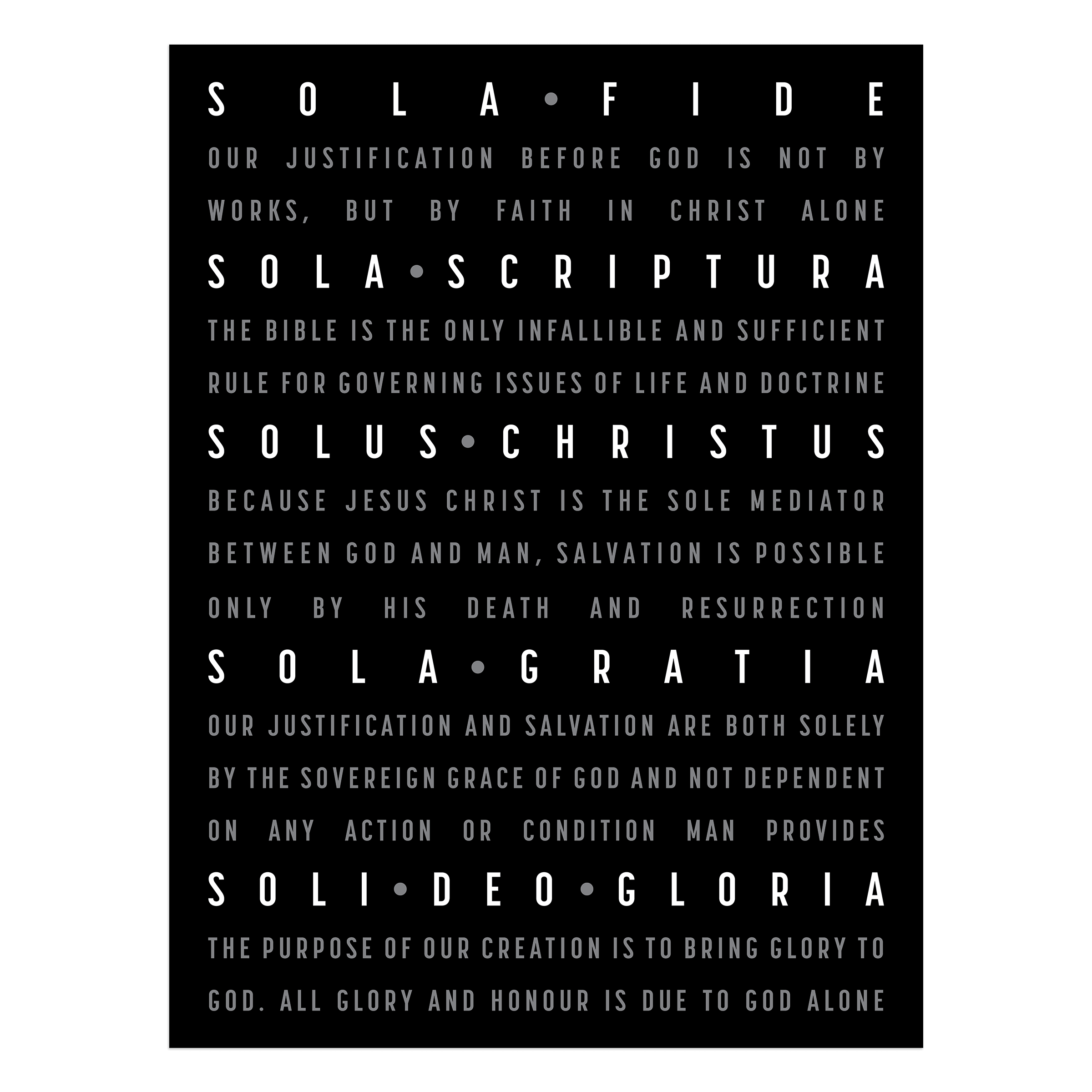As believers, the foundation of our faith rests on one defining moment–The Resurrection of Jesus.
The Christian faith is not theoretical or abstract; it’s historical. Our story begins in the Old Testament with promises made to God’s people that culminate in the death, burial, and bodily resurrection of Jesus of Nazareth. These events are not fairytales or myth; they are historical, as sure as the chair you’re sitting in or the phone in your hand.
The death, burial, and resurrection of Jesus is not simply a cute event that we celebrate with an Easter egg hunt. We’re talking about the most powerful event in the history of the world. We’re talking about a reality that causes people who are dead on the inside to come to life. Jesus didn’t come to make bad people good. He came to make dead people live. He did that by entering into human history, taking on human flesh, and becoming the sacrifice demanded for sin.
One person said, “The Christian faith is a historical faith.” 2 The Christian faith is rooted in one defining moment when the God of all creation made a relationship with himself possible. This moment is so foundational that the Apostle Paul says without it, Christians should be the most pitied of all people. He writes, “if Christ has not been raised, our preaching is useless, and so is your faith. If only for this life we have hope in Christ, we are of all people most to be pitied (1 Corinthians 15:14, 19).” In other words, faith is not in opposition to historical events but actually dependent on a historical event, namely the resurrection of Jesus.
While Christianity is rooted in one gloriously defining moment, it’s also marked by little defining moments — moments when God broke into our story and revealed himself in power. The death, burial, and resurrection of Jesus is undoubtedly the tallest peak in a range of mountains. Still, there are other peaks — moments that fundamentally changed and impacted how believers live moving forward.
Think of Paul’s conversion and the gospel movement that erupted as a result of his life.
Or remember the faithfulness of Polycarp — the disciple of John — who in the face of death declared, “86 years have I have served him [Jesus], and he has done me no wrong. How can I blaspheme my King and my Savior?”
Consider when the Counsel of Nicaea affirmed the doctrine of the Trinity in AD 312. These stand as defining moments when God’s glory was on display; each of these are moments in history that significantly impacted how followers of Jesus lived moving forward.
The Reformation was a defining moment like this. It was a moment when God used a man named Martin Luther (Born on November 10, 1483) to radically impact how people worship and think about God. At the time, The Church had strayed away from biblical teaching. They had begun to teach that grace could be earned, and favor with God merited. John Tetzel even taught that the Pope held the same power to forgive sins as Jesus. Tetzel is famous for saying, “As soon as the coin in the coffer rings, the soul from purgatory springs.”
The Accidental Reformation
Martin Luther was concerned for the future of the church. So rather than sitting back passively, he decided to take action — he chose to speak up. His main point was simple: You can’t buy God’s grace, and no authority is higher than the Bible. Luther once said, “The time for silence is past, and the time to speak has come.” [4]
And so, on October 31, 1517, Luther nailed his now-famous 95 Theses to the door of the All Saints’ Church in Wittenberg, Germany. Understand, Martin Luther had no intention of starting a reformation. He wasn’t trying to go viral. He merely wanted to share the truth and discuss how the church had strayed.
One writer says, “Luther wasn’t spreading his theses around on little gospel tracts. He wasn’t shouting his complaints from rooftops or some midlevel form of social media to tell his friends how angry he was. When he nailed his letter to the church’s door, he invited debate in a way that was common for his time.” [5] This wasn’t a Twitter-rant. It was a deep longing to see truth reign. But as Luther’s writing began to pick up steam, it soon became apparent that this would be a defining moment in the history of the church.
In 1521, Luther appeared on trial at the Diet of Worms (I know it’s a strange name that surprisingly has nothing to do with actual worms). At this counsel, Luther was asked to defend himself. His response was clear. He said, “I am bound by the Scriptures I have quoted and my conscience is captive to the Word of God. I cannot and will not recant anything, since it is neither safe nor right to go against conscience.” [6]
In the years that followed, the five solas came to summarize the core truths of the Reformation. The term sola is the Latin word for alone or only. While five solas were not terms used by Martin Luther, they have become a helpful way to describe the core truths of the Reformation. Think of them like the DNA of the Reformation. They are a simple way to summarize the foundational truths recovered during this defining historical moment.
The five solas are sola Scriptura (by scripture alone), sola gratia (by grace alone), sola fide (through faith alone), solus Christus (through Christ alone), and Soli Deo gloria (glory to God alone). Below is a brief explanation of each solas.
The Five Solas
1. Sola Scriptura (by scripture alone)
Paul writes in 2 Timothy 3:16-17, “All Scripture is breathed out by God and is profitable for teaching, for rebuking, for correcting, for training in righteousness, so that the man of God may be complete, equipped for every good work.” In other words, the Bible is the final authority over faith and practice in the believer’s life. That doesn’t mean it’s the only authority. It simply means that when something or someone disagrees with the teachings found in the scripture, the scripture holds priority. It is infallible and breathed out by God, and because this is true, it holds the same authority as the audible voice of God.
The church in Luther’s day had completely lost sight of this. They taught that the Pope had the same authority as the Bible. Brandon D. Smith says, “In a sense, they believed the Pope had as much power as Scripture.” [7] But what Paul said to Timothy is that the Bible is breathed out by God and therefore carries the same authority as the very words of God.
2. Sola Gratia (by grace alone)
The simplest definition of grace is this: undeserved favor. Grace is when God does for you what you can’t do for yourself. You can’t buy grace. You can’t earn grace. No one is so good they don’t need it, and no one is so bad they can’t have it. Salvation is a free gift of grace from God, who is a loving and kind Father. When Martin Luther was asked what we contribute to our salvation, he said, “Sin and resistance.” When Paul spoke of salvation, he said, “For you are saved by grace through faith, and this is not from yourselves; it is God’s gift—not from works, so that no one can boast (Ephesians 2:8-9).” Simply put, salvation is received, not achieved.
3. Sola Fide (through faith alone)
The way a person receives the grace of God is through faith. “We are justified — declared to be right with God — through faith alone.” [8] To have faith in Christ means you stop trying to win God’s favor by your own character. It means to trust fully in the finished work of Jesus on the cross. For Luther, this was a watershed issue in his walk with Jesus — he struggled deeply with his own sinfulness and feelings of being a complete wretch. He found comfort in the fact that salvation is through faith alone because he sincerely believed that faith was all he had. He couldn’t offer anything else. The same is true for you and me. We receive God’s grace through faith alone.
4. Solus Christus (through Christ alone)
Jesus said in John 14:6, “I am the way, the truth, and the life. No one comes to the Father except through me.” Apart from Christ, there is no salvation. Christianity does not begin with our pursuit of Christ but with Christ’s pursuit of us. He came and lived the life that we couldn’t. He died the death that we deserved. He rose in glory by the power of the Spirit, and now he offers us resurrection life. He offers us a restored relationship with our Creator. When it comes to salvation, it is through Christ alone.
5. Soli Deo Gloria (glory to God alone)
David writes, pondering the glory of God, “The heavens declare the glory of God, and the sky above proclaims his handiwork (Psalm 19:1).” In 1 Chronicles 29:11 says, “Yours, O Lord, is the greatness and the power and the glory and the victory and the majesty, for all that is in the heavens and in the earth is yours. Yours is the kingdom, O Lord, and you are exalted as head above all.” There are no words; there is no illustration that can cause us to grasp the magnitude of God’s glory. It’s like standing at the foot of Mt. Everest, taking a picture, and showing it to your friend. Your photo will undoubtedly be incredible, but it can’t even begin to show how amazing Mt. Everest is. Similarly, you and I will never truly grasp the magnitude of God’s glory. God alone is also due all the glory for our salvation as it was appointed by him, accomplished by him, and ultimately has his glory as its goal.
Oh, the depth of the riches
and the wisdom and the knowledge of God!
How unsearchable his judgments
and untraceable his ways!
For from him and through him
and to him are all things.
To him be the glory forever. Amen. (Romans 11:33, 36)
- https://www.forbes.com/sites/forbescoachescouncil/2017/08/03/how-to-define-your-defining-moments/?sh=954e41c25d0f (back)
- To God Alone, Brandon D. Smith, pg. 9. (back)
- A Visual Theology Guide to the Bible, pg. 152 (back)
- Martin Luther, as quoted in Stephen J. Nichols, The Reformation: How a Monk and a Mallet Changed the World (Wheaton: Crossway, 2007), 37. (back)
- To God Alone, Brandon D. Smith, pg. 11. (back)
- Martin Luther, as quoted in Documents from the History of Lutheranism 1517-1750, ed. Eric Lund (Minneapolis: Fortress, 2002), 32. (back)
- To God Alone, Brandon D. Smith, pg. 15. (back)
- To God Alone, Brandon D. Smith, pg. 16. (back)







